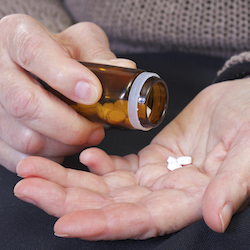The seeds of the pernicious disease osteoporosis are sown during adolescence, when the skeleton is most active in absorbing dietary calcium and building up nearly all the bone mass that will carry the teenager throughout life. Along with calcium, both vitamin D and vitamin K (particularly vitamin K2) are essential for bone formation. Little research has been done to evaluate adolescents’ vitamin K requirements for optimal bone development, but recent papers indicate that vitamin K status plays an important role in children’s bone health, and that bone metabolism requires significantly more vitamin K than blood coagulation. Calcium and vitamin D intake is well understood in the medical community, though fewer physicians are aware of the importance of vitamin K2, and little has changed with respect to dietary intake. By Karan Baucom, MD; Lara Pizzorno, MA; and Joseph Pizzorno, ND, published in the J of Restorative Medicine, Osteoporosis: The Need for Prevention and Treatment.










